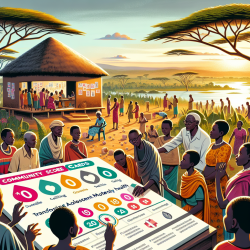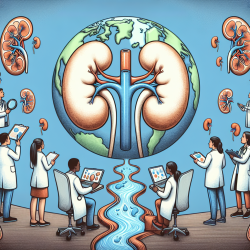The journey of adolescent mothers in Uganda is fraught with numerous challenges. From psychosocial issues to inadequate health services, these young women face a myriad of obstacles that significantly impact their maternal health. A recent study conducted in Kibuku District, Uganda, sheds light on these challenges and explores the potential of community score cards (CSCs) as a tool to address them.
Understanding the Challenges
The study identified five major challenges faced by adolescent mothers:
- Psychosocial Challenges: Stigma from communities and families often leads to emotional distress and reluctance to seek antenatal care.
- Physical Abuse: Many adolescents experience violence from partners or family members, exacerbating their vulnerability.
- Lack of Legal and Cultural Protection: Adolescents often lack legal recourse and are subjected to cultural practices that undermine their autonomy.
- Inadequate Adolescent-Friendly Services: Health facilities often fail to provide services tailored to the needs of adolescents.
- Lack of Birth Preparedness: Financial constraints prevent many adolescents from preparing adequately for childbirth.
The Potential of Community Score Cards
The CSC is a participatory tool that brings together service providers and users to identify challenges in service delivery and find solutions. However, the study found that while CSCs addressed general maternal health issues, they did not specifically target the unique needs of adolescents. This gap highlights the need for more focused interventions within the CSC framework.
Recommendations for Practitioners
- Create Adolescent-Specific Meetings: Separate meetings for adolescents can provide a safe space for them to voice their concerns without fear of judgment from adults.
- Targeted Mobilization: Actively encourage adolescents to attend CSC meetings through school programs and community outreach.
- Include Adolescent Indicators: Ensure that CSCs incorporate indicators specific to adolescent maternal health needs during the planning phase.
- Sensitize Health Workers: Train health workers on adolescent-friendly practices and the importance of respectful care.
Encouraging Further Research
The findings from Kibuku District underscore the importance of targeted interventions for adolescent mothers. Practitioners are encouraged to conduct further research into effective strategies for integrating adolescent-specific needs into CSCs. By doing so, they can contribute to more equitable healthcare outcomes for this vulnerable population.
To read the original research paper, please follow this link: Maternal health challenges experienced by adolescents; could community score cards address them? A case study of Kibuku District– Uganda










